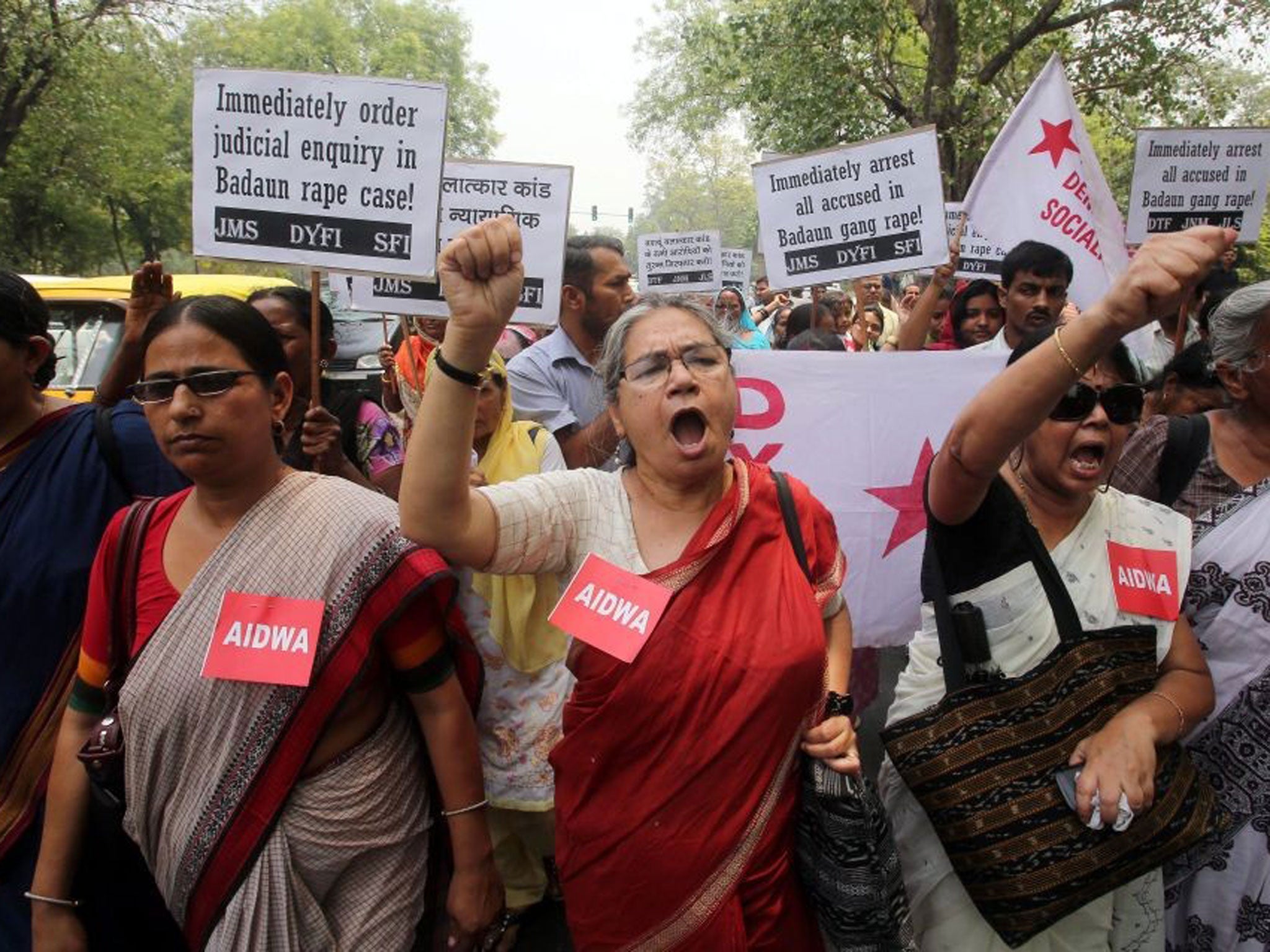Indian woman who was strangled to death had acid poured on her face to prevent her being identified
Attack took place in Uttar Pradesh, 60 miles from where two teenage girls were gang raped and hanged from a mango tree

Police in north India are trying to ascertain the identity of a young woman who was strangled to death and had acid poured on her face. The attack took place about 60 miles from the village where two girls were last week gang-raped and hanged from a tree.
Officers said the body of the woman, believed to be aged 22, was discovered on Saturday in a field in the village of Aithpura, close to the city of Bareilly.
Initial reports said the woman had been raped, made to drink acid and strangled. Her face had later been mutilated with acid and petrol, apparently in an attempt to hide her identity.
In pictures: India in shock after teenage girls 'gang raped and hanged'
Show all 13But the senior investigating officer, Supt Ravindra Gaur, told The Independent that while the woman had been murdered and her face destroyed by acid, post-mortem examination results showed she had not been raped.
“We are still trying to identify the body,” he said. “[We believe] the acid was poured on her to conceal her identity.”
News of the latest incident of lethal violence against women comes as India is still reeling from the rape and murder last week of two cousins, who were seized and assaulted after they went into the fields to relieve themselves. The girls, believed to be aged between 12-14, were then hanged from a mango tree on the edge of the village using their own scarves.
Relatives said when the girls went missing, police refused to investigate the case and abused them over their low-caste status. The family’s caste is at the very bottom of the Hindu social structure, whereas the three alleged attackers and the police officers on duty belong to the yadav caste, which is the “dominant” caste in the area.
Since the discovery of the girls’ bodies last Wednesday morning, a number of politicians have made their way to the simple shack occupied by the girls’ extended family. The most recent was Ram Vilas Paswan, a government minister who is also from a low caste.
He criticised the state government of Uttar Pradesh (UP) for failing to do more to protect the girls. “If you are not being able to provide right to life, then what kind of government this is,” he asked, according to reports in the Indian media.
The state government in UP is run by the the Samajwadi Party, which draws much of its support from the yadav caste. During India’s recent election campaign, the head of the party, Mulayam Singh Yadav, sparked controversy by saying rapists should not receive the death penalty because “boys will be boys”.
On Monday, protesters from the Bharatiya Janata Party, which runs India’s federal government, protested outside the headquarters of the UP state administration in Lucknow. Police used water cannon to disperse them.
Police said there was a suggestion that the woman discovered on Saturday near Bareilly may have come from the state of Uttarakhand and a team of detectives had been dispatched there to look into her background.
Subscribe to Independent Premium to bookmark this article
Want to bookmark your favourite articles and stories to read or reference later? Start your Independent Premium subscription today.

Join our commenting forum
Join thought-provoking conversations, follow other Independent readers and see their replies